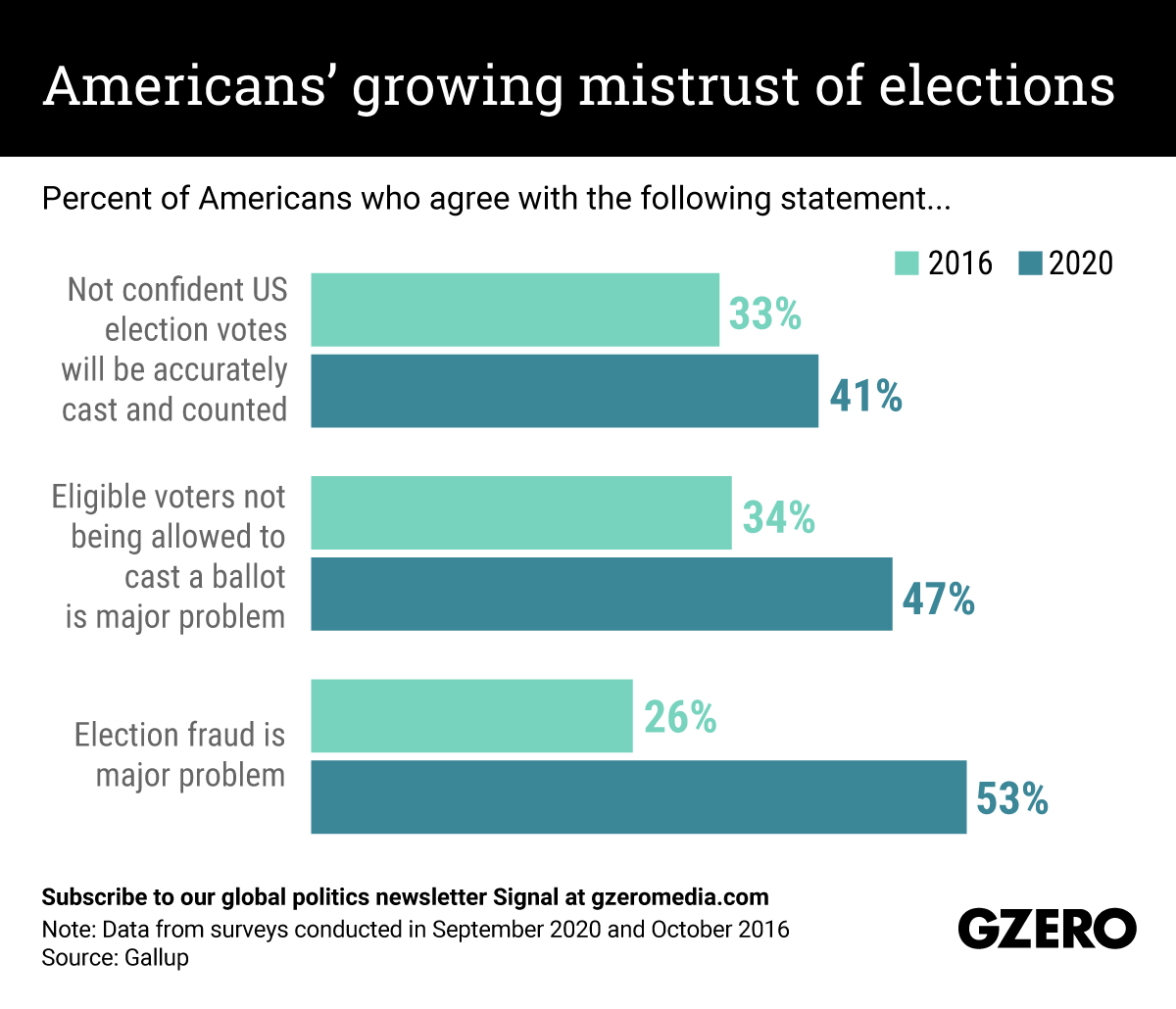The Graphic Truth: Americans' growing mistrust of elections
Less than a week before the US election, President Donald Trump is repeatedly questioning the legitimacy of the vote (if he doesn't win) over largely unsubstantiated claims of potential fraud in universal mail-in voting. But with absentee ballots coming in all-time highs in all states due to the coronavirus pandemic, some Americans worry that the system itself may not be able to handle such an influx of ballots, including those already cast by a record number of early voters. Whether or not you agree, Gallup data show that US citizens are now less confident that the election will be conducted accurately — and more concerned about election irregularities and voter suppression — than they were four years ago. We take a look at how Americans' views on these electoral integrity issues have changed from 2016 to 2020.
